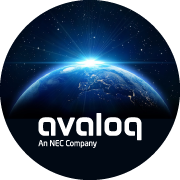Malaysia
Breadcrumb navigation
Using technology to deliver an ESG investment market accessible to all


Green and inclusive recovery through fintech
There are two challenges at the heart of building a better post-COVID world: balanced prosperity which directly addresses climate change and more fairness in the distribution of wealth.
Both fall under the broad banner of Environmental, Social and Governance (ESG) and both can be addressed by new, fast-evolving digital capabilities. We have seen just how powerful such processes – and mindsets – can be: they were the driving force helping the planet overcome the COVID-led health crisis.
In terms of the first challenge, 2020 saw global spending on clean technologies, renewables and green bond issuance skyrocket; investments driven by ESG sentiment surged to over $40 trillion last year by some estimates. Yet this will have to accelerate further if the world is to successfully decarbonize.
"Leaders in many countries have clearly stated that one of the pillars of the new recovery model are green initiatives. Financial technologies can help provide quality data and tools to help individuals and institutions make optimal ESG-investment decisions while avoiding greenwashing," says Daichi Iwata, Senior Director, Digital Integration Division, NEC.
The market for ESG-based investing is set to grow further and become more complex due to upcoming regulatory changes. In the EU, an amendment to MiFID II coming into force in Q4 2021 will require all providers of financial products to take account of a client's ESG preferences when deciding suitable investments.

Chief Product Officer,
Avaloq Group
Photographer's credit: ©2021 Juerg Kaufmann
"ESG is more than just an investment trend. Regulatory developments are really changing the way we think about finance," says Martin Greweldinger, Chief Product Officer for Avaloq Group, the world leader in wealth management software services. "COVID has accelerated the digital transformation in banking, in all financial services such as payments. Events like COVID can change social practices rapidly."
Adapting to – and capitalising on – this profound market shift will require not just investment and capital flows but a new breed of dedicated technologies, digital processes and data-led fintech propositions, including Artificial Intelligence (AI). These will allow investors – institutional and retail – to clearly understand and take informed ESG-led investment decisions in confidence and with full transparency.
However, this is only half the story. ESG is not just about addressing climate change and environmental damage, it is also about opening up access to investment opportunities to all classes of investors. A commitment to ESG is not just to sustainability, but to greater social equality and inclusion.
"Financial inclusion is defined by the World Bank normally as the availability and equality of opportunities to access financial services, and that's exactly our point about the need to democratize wealth management," says Mr. Greweldinger.
"Financial advisory services have traditionally been only available to the ultra-rich and rich, but through digital innovations, this gap is being closed. With AI and digital transformation, financial institutions will be able to provide similar financial services to those with 10,000 dollars in their account as they do to those with 10m dollars."
Explainable, simple, seamless, and secure tech

Senior Director,
Lead of Business Development in Digital Finance,
NEC
The future of ESG-driven and more democratized financial services will require highly innovative, adaptable and 'future proof' digital solutions.
Firstly, the need to deliver quality, actionable data and analytics to investors from increasingly complex, costly, and fast-expanding amounts of data will be key. Avaloq itself describes this as the "incalculable difficulties and complexity of the data science journey". This will likely see various systems integrated into one asset to help wealth managers provide real-time and optimal portfolio management.
Mr. Greweldinger emphasizes simplicity and seamlessness. "It is vital to put the entire investment management journey into one data universe, bringing all sorts of data together and making them easily and intuitively accessible, where it is necessary, in real-time."
Importantly, these tools and solutions will not only provide an answer but provide a basis for how the answer was reached – so called Explainable or White Box AI. Such Explainable AI will be necessary in some cases to meet regulatory requirements for ESG investing, says Mr. Iwata. Such technology, in which NEC has been a pioneer, can provide greater accountability in investment decisions to stakeholders.
Second, it is important that such advanced technologies, including AI, do not replace or exclude traditional human advisors but complement their work, enabling what Mr. Greweldinger calls "hybrid" or "bionic" advice.
"Utilizing AI will lower the cost of financial services. Increasing the use of digital channels will boost margins," he explains. "The rich range of self-service options and the personal account and portfolio information available 24/7 will free advisors from time-consuming routine work so they can devote themselves to high-value tasks."
Third, services will need to be "democratized" and inclusive. Reduced fees and scalability through powerful data analytics and technologies as well as AI will enable a wider class of investors to receive financial advisory services. Such democratization of access to fintech will be an integral part of reducing digital divides in society in general, argues Mr. Iwata.
Such "digital inclusion" will require not only the enhancement of AI performance and functions, but also increased social acceptability and simpler implementation and introduction of these technologies.
Finally, security and privacy will be critical to ensure sustained growth.
"Digital finance only works when it is trustworthy," explains Mr. Greweldinger "NEC has a great baseline and technology for this – from biometrics to blockchain – which can make financial interaction secure."
One of NEC's solutions is a quick and secure online verification software called KYC (Know-your-customer) which employ's the world's most accurate facial recognition technology. The system allows users to protect their privacy by completing authentication within their smartphones, with no need to send their biometrics to another device.
NEC has also spent years to overcome privacy and security vulnerabilities of existing Blockchain solutions. Its unique improvements have resulted in scalable and private industrial blockchain with features like resilience to network attacks, privacy through interconnected satellite chains, and high throughput.
Such innovations to ensure greater security in financial transactions will be ever more vital as more and more investors participate in digital finance.
Win-win fintech partnership
It is into this exciting, but challenging fintech space that NEC has recently made purposeful entry together with Avaloq. Last October, the company announced the acquisition of Zurich-based Avaloq, the world's leading financial asset management company, in a $2.2bn deal. A month later, Avaloq launched an ESG-investment solution for banks and wealth managers which allows them to build tailored, personalized ESG-compliant portfolios for clients.
"We are really happy to be part of the NEC family because NEC's vision is to orchestrate a brighter world, while Avaloq's vision is to be the orchestrator of a financial ecosystem to democratize wealth management," says Mr. Greweldinger.
Avaloq holds top market share in wealth management software globally, with over $5 trillion running through its platform for more than 150 customers in 30 countries worldwide. It has been a fintech leader in digital banking solutions and digital transformation, with recent expansion in open banking applications and platforms. It is expected that NEC's leading biometrics and AI technologies will deliver even greater safety, security, and value to Avaloq's existing customers.
"Avaloq has the best banks for advisories globally, while NEC has cutting-edge AI and security technologies, along with leading capabilities in blockchain, 5G, and quantum networks," says Mr. Iwata.
Though still early days, Mr. Iwata reports exciting communications between the R&D arms of both NEC and Avaloq. He also believes that the business and social practices from the Swiss company and its clients will help accelerate NEC's foray into global digital financial, while shifting to a Software as a Service (SaaS) business model.
In turn, Avaloq sees NEC as a very strong partner with shared long-term interests which gives "safety and future-proofing for clients", says Mr. Greweldinger.
In ESG-investing and greater inclusion of accessing financial services, the NEC-Avaloq partnership promises game-changing innovations. All signs point to an exciting future for fintech which accelerates the green recovery in our post-COVID world.


